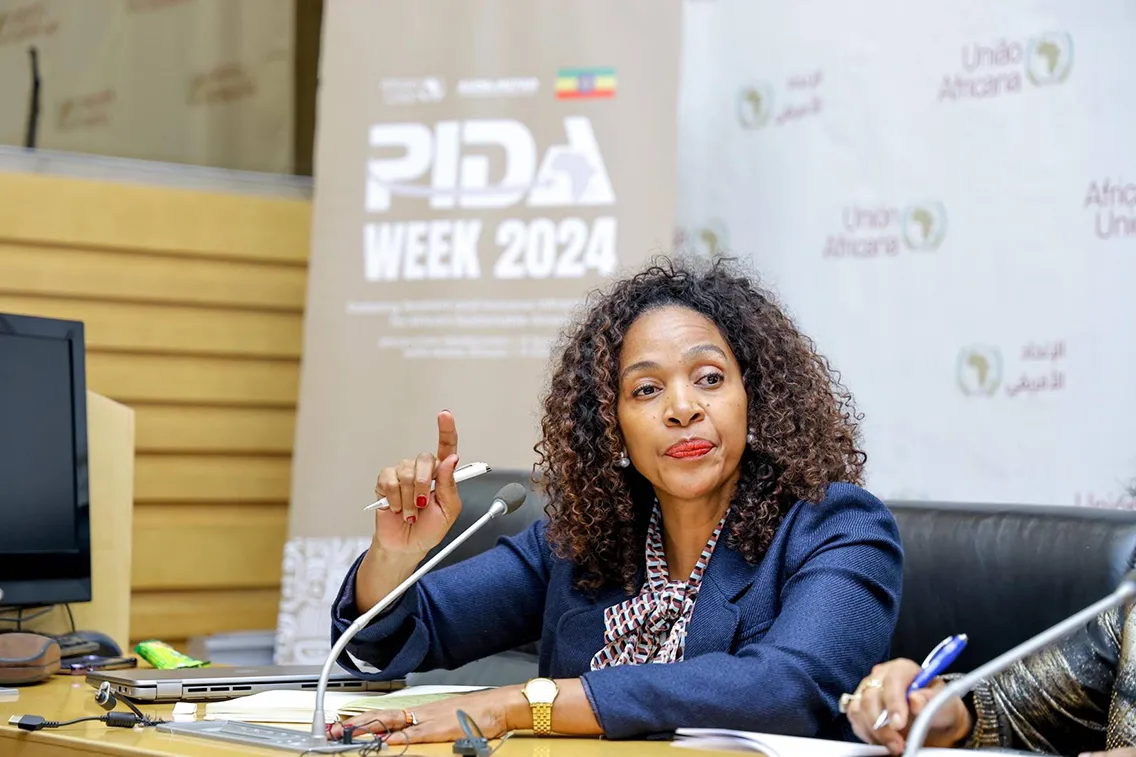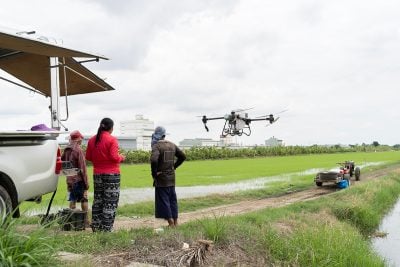This article was produced with the support of AUDA NEPAD
Maubane, who spoke to African Newspage on the sidelines of the 8th Programme for Infrastructure Development (PIDA) Week in Addis Ababa, Ethiopia recently, is committed to reshaping how Africa sees itself—and how the world views Africa. PIDA Week is the continent’s premier infrastructure event.
The new AUDA-NEPAD image-maker is passionate about reframing perceptions and positioning Africa as a magnet for investment opportunities. “When people think of Africa, their first thoughts shouldn’t be instability or risk—they should be innovation, resilience, and boundless potential,” Maubane told African Newspage.
With over 29 years experience in multinational corporations spanning industries from energy to logistics, technology, and engineering, for Maubane, her new job is not just another professional responsibility but a personal mission. She views her role at AUDA-NEPAD as more than just another job. “As an African, I see this as a chance to contribute my skills to something larger than myself.”
Taking on a role that influences how the world perceives an entire continent might seem overwhelming but Maubane embraces the challenge with enthusiasm. “I’ve never worked in development before yet the fundamentals of communication are the same. You start with the truth—facts and figures—and you tell that story consistently over time.”
The new AUDA-NEPAD image-maker’s career includes stints at giant global multinationals such as Coca-Cola and BP. “Those experiences taught me how to reposition brands and build reputations. Now, I’m applying those skills to something much bigger: the brand of Africa.”
De-Risking Africa for Investment
Maubane acknowledges a tough reality: Africa has long been viewed through a lens of risk by international investors. “There are entrenched perceptions that the continent is unsafe, unstable, or too complex for business. This couldn’t be further from the truth,” she told African Newspage.
In this vein, Maubane underscores AUDA-NEPAD’s commitment to de-risking investment in African infrastructure projects to attract global investment. “When we bring a project forward—whether it’s in energy, water, transport, or ICT— we [must] make sure all the groundwork has been done. Feasibility studies, environmental impact assessments, and robust legal frameworks are in place before investors even look at it.”
This is not just about ticking the right boxes rather about creating a foundation for transformative, cross-border projects, she asserts. “Most of the initiatives under PIDA impact multiple countries, creating regional corridors of opportunity. That is why partnerships with organizations like the African Development Bank, the Development Bank of Southern Africa, and Regional Economic Communities (RECs) are so essential.
“Take the Lamu Port-South Sudan-Ethiopia-Transport (LAPSSET) corridor project, connecting Kenya, Ethiopia, and South Sudan. This project isn’t just about roads or pipelines—it’s about creating jobs, facilitating trade, and improving lives across entire regions. When we communicate these success stories, we show the world what’s possible,” she asserts.
The Power of Communication
For Maubane, her role extends far beyond crafting press releases or managing media relations. “Communication is about advocacy—it’s about telling the story of Africa’s progress and ensuring that story reaches the right people in the right way,” she explains.
One of her key challenges is addressing Africans’ perceptions of Africa. “As Africans, we sometimes contribute to negative stereotypes about ourselves. Simple phrases like ‘African time’ or ‘we’re disorganized’ do so much harm. Changing the narrative starts at home. We need to recognize our own potential and speak about it with pride.”
Maubane believes changing negative stereotypes about Africa requires collaboration with the media. “Your [media’s] voice is indispensable. It’s not just about reporting; it’s about informing citizens and inspiring action. When the media helps communicate the impact of initiatives like PIDA, it builds trust and engages communities, especially young people.”
Agenda 2063: A Vision for Transformation
At the heart of Maubane’s work is promoting Agenda 2063, the African Union’s 50-year masterplan for sustainable development. “This isn’t just a government initiative—it’s a collective vision. It’s about harnessing Africa’s resources, talent, and ingenuity to create a continent that’s prosperous and self-sufficient,” she explains.
She underlined the significance of PIDA as a flagship program under Agenda 2063, aimed at creating world-class infrastructure that foster seamless road, rail and air connectivity among African countries. “Imagine a continent where you can travel seamlessly by road, rail, or air; where energy and water are abundant; where digital connectivity drives innovation. That’s the goal.”
However, she acknowledges that achieving this vision requires overcoming significant barriers. “Infrastructure is critical, but so are health, education, and governance. That’s why AUDA-NEPAD works across sectors—our mission is about holistic development.”
Maubane sees young people, who constitute 60% of Africa’s population, as central to the realisation of the goals of Agenda 2063.
“The youth are Africa’s greatest asset, yet they’re often overlooked in discussions about development. Agenda 2063 is their blueprint—it’s about creating a future where they can thrive. Imagine if every young African saw themselves as part of this mission—demanding accountability, driving innovation, and building their own futures. That’s the Africa we’re working towards,” she noted.
Maubane believes achieving Africa’s grand vision as enshrined in Agenda 2063 requires collective efforts. She calls on journalists, business leaders, and everyday citizens to join the mission.
“Together, we can drive the vision of Agenda 2063 forward. It’s not just about AUDA-NEPAD or the African Union—it’s about all of us taking ownership of Africa’s future. Africa is not a continent of problems; it’s a continent of possibilities. And when we tell our story right, the world will see that too,” she concludes.
This article is republished with permission from African Newspage – a digital newspaper for development reporting. The original article can be viewed here.

 Sign in with Google
Sign in with Google 



